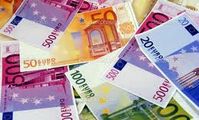The Export Hub

GLOBAL MANUFACTURERS AS diverse as GAP, Procter & Gamble, Pirelli and Cadburv are exporting from Egvpt in record numbers. It's not difficult to see why. Much of it has to do with highly competitive wage and utility costs, proximity to key markets, an educated workforce, low corporate taxes and a large domestic market.
But the real secret to the many export success stories now being written has to do with Egypt's large basket of trade agreements, which gives manufacturers based here preferential access to some of the world's most important markets.
A World Trade Organization member, Egypt has trade agreements with the European Union, the European Free Trade Association, the Agadir countries, the United States. Eastern and Southern Africa and the Arab states. Egypt also has a unique free-trade agreement with Turkey.
Top Partners
In 2006707, Egypt's total global trade stood at US$ 59.8 billion, with US$ 20.4 billion of that figure being with the European Union, Egypt's top trade partner. That same year, the country exported a total of US$ 22 billion, more than triple the US$ 7.1 billion recorded in 2001 112. Egypt's largest single-country trading partner is the UnitedStates, with which Egypt traded US$ 15.11 billion in 2006 07.
In 2006/07, the EU absorbed 34% of Egypt's exports, propelled by the 2004 EU-Egypt Association Agreement, which provides Egypt with preferential access to the European Union. Among the top purchases made by EU countries were petroleum products, crude oil, aluminum, iron and steel products and ready-made garments. The US purchased 31% of total exports, while exports to Arab countries stood at 13% during the same year.
Top Sectors
products and home furnishings. In the years ahead, the nation will attract significant new foreign investment in seven core sectors, with foreign partners establishing themselves in unique industrial zones and clusters to harness the country's preferential trade agreements. These sectors include building materials, engineering products, fresh agri-produce, processed foods, textiles, ready-made garments and furniture.
As I g> pi's export base has diversified, the balance has shifted in favor of non-petroleum exports, with the value of non-oil proceeds more than doubling from US$ 4.7 billion in 2001 02 to a record high of US$ 10.1 billion in 2006/07. Today, non-oil exports account for an average of 58.5% of Egypt's exports.
Along the way. the country has begun exporting growing quantities of value-added manufactured products, with the fastest-growing sectors of the past decade including metals and metal products, chemicals, food processing and agricultural products. In food products, sales of essential oils, resins, spices, dried onions, preserved vegetables and the like have shot up a remarkable 97.5% in the period 2001/02 through 2006/07.
Exports of chemical products (including fertilizers and pharmaceuticals) grew at a healthy 48.7% pace in the same period, while sales of metal products surged 34%.
From the rest of the world, Egypt imported US$ 37.8 billion in goods and services in 2006/07, more than double the US$ 14.6 billion it purchased in 2001/02. creating an annual growth rate of 16"... Egypt's primary imports include investment and intermediate goods such as iron and steel products, chemicals, plastics, animal and vegetable oils and fats, and wood.
Key investment goods imported include spare parts and car accessories (US$> 833 million in 2006/07). communications equipment (US$ 431 million), computers (US$ 338 million), optical appliances (US$ 288 million) and motors, generators and spare parts (US$ 273 million).
Record Levels for Exports of Service
Exports of services (net of imports) have grown sharply in the five-year period ending 2006/07, with the average annual growth rate clocking in at 25%. Egypt's services balance recorded a surplus of US$ 11.4 billion in 2006/07. up from US$ 4.9 billion four years earlier, with tourism (US$ 8 billion). Suez. Canal proceeds (US$
4.2 billion) and investment income (US$ 3 million) leading the way.
The real success stun in services is still being written: Today, dozens of foreign companies ranging from Vodalone to Satyam. Microsoft to Oracle are outsourcing their call center and customer support operations to Egypt, creating thousands of new high-skill jobs in the process.
New Industrial Zones
To facilitate investment in Egypt for companies looking to harness the nation's export power, the government has signed agreements with China. Russia, Turkey. Jordan, Qatar and Spain to create special industrial /ones and clusters here.
These centers of export excellence will group together foreign investors and lop Egyptian exporters alike, with both being supported by the country's increasingly efficient and diverse group of feeder industries.
As Egypt continues to shift its export focus to medium- and high-technology industries, the country will continue to break open new7 markets while deepening its ties to existing trade partners. In the years ahead, foreign trade will be not just a driver of economic growth, but also a sustainable engine of job creation.
Your Rating:
Overall rating: 2.000
Totally voted: 1
Comments
Weather in:
Exchange Rates
-
IMF loan expected next month
Apr 22, 2013, rating: 3.000, 3 votes Egypt may secure an International Monetary Fund loan agreement in about amonth, state news agency MENA reported, quoting "informed" sources ...
Egypt may secure an International Monetary Fund loan agreement in about amonth, state news agency MENA reported, quoting "informed" sources ...
-
Egypt received 11 million tourists in 2012 and aims to boost that number to 14 million in 2013.
Jan 22, 2013, rating: 3.000, 2 votes
Egypt received 11 million tourists in 2012 and aims to boost that number to 14 million in 2013.
-
Egypt limits travelers leaving country to US$10,000 in cash
Dec 26, 2012, rating: 3.250, 4 votes Egypt has banned travelers from carrying more than US$10,000 in foreigncurrency cash in or out of the country ...
Egypt has banned travelers from carrying more than US$10,000 in foreigncurrency cash in or out of the country ...
-
National Coalition on Climate Change for Egypt is born
Nov 30, 2012, rating: 5.000, 1 votes The global COP18 conference on climate change opens in Doha Monday.About 17,000 participants from all over the world ...
The global COP18 conference on climate change opens in Doha Monday.About 17,000 participants from all over the world ...
-
Judgment for sexual harassment
Nov 14, 2012, rating: 3.600, 5 votes A man was sentenced to two years in prison and fined LE 2,000 for sexually harassing a woman, an ...
A man was sentenced to two years in prison and fined LE 2,000 for sexually harassing a woman, an ...
-
Scientists are enthusiastic about hydrogen's green applications
Nov 13, 2012, rating: 4.000, 3 votes
As fossil fuel reserves decrease, many countries are turning to hydrogen as one of the main sources of alternative energy ...








